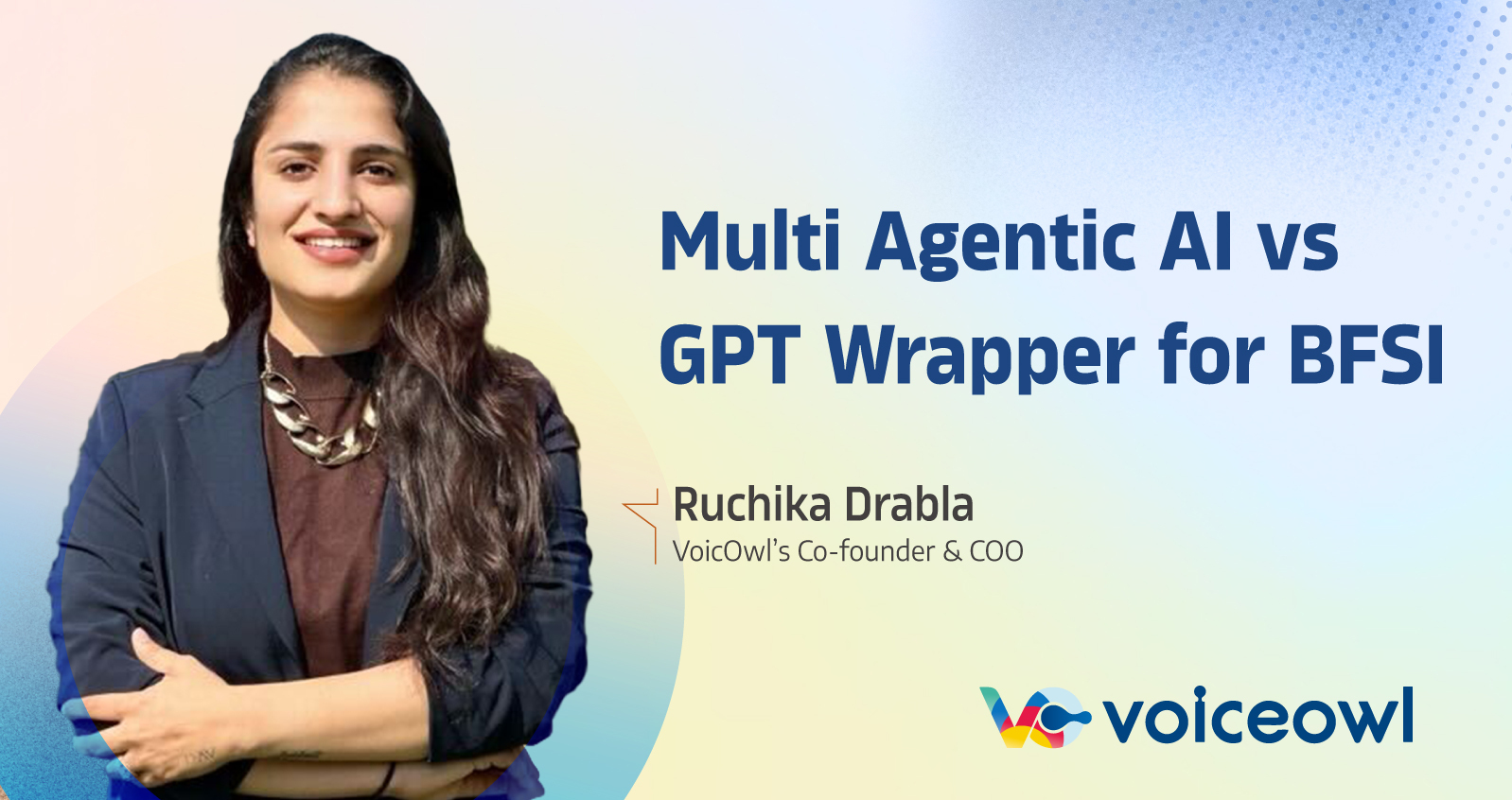When it comes to the BFSI sector, AI for banking and finance is no longer a luxury but a necessity. Companies in BFSI are increasingly turning to AI solutions. All to streamline operations, enhance customer service, drive growth and stand out.
However, many find that generic tools, like GPT Wrappers, fall short when handling complex queries. And sometimes, they aren’t accurate enough. These limitations hinders your business from the transformative results you seek with AI. Well, you’re not alone.
This is where multi-agent AI comes into play. They don’t follow GPT Wrapper’s one-size-fits-all approach. Multi-agent AI introduces specialized agents that work specifically for your business. This ensures higher accuracy and adaptability across complex scenarios.
What’s a GPT Wrapper Anyway?
With AI tools like ChatGPT, Google Bard, and Anthropic Claude, companies are quickly developing apps that heavily rely on these models . These applications add a thin layer of code over a Generative AI, effectively “wrapping” the AI. ChatGPT Wrappers are particularly popular due to the widespread use of OpenAI’s ChatGPT.
Formally, a GPT Wrapper is an application that provides a thin layer of UI/UX functionality on top of API calls to a GenAI. These wrappers are often used as standalone business products. They offer a streamlined way to harness the power of generative AI for banking and finance.
What’s Wrong with Using GPT Wrappers in BFSI Companies?
- Superficial Responses:
GPT Wrappers rely on a general-purpose AI model. This model generates responses based on extensive but non-specialized datasets. They lack domain-specific training and algorithms necessary for understanding complex BFSI queries. This results in shallow and sometimes irrelevant answers.
- High Scaling Costs:
Every interaction with a GPT Wrapper involves an API call to the underlying AI service. As usage increases, the total cost of these API calls can become very high. This is especially true in busy BFSI environments where real-time processing is essential.
- Security Risks:
GPT Wrappers are vulnerable to prompt injection attacks. Malicious inputs can trick the AI into revealing confidential information or performing unintended actions. Additionally, prompt leaking can expose sensitive templates and underlying logic, compromising data security.
- Regulatory Challenges:
BFSI companies must comply with stringent financial regulations and data protection laws. GPT Wrappers often lack built-in compliance features. This means you need extra customization and oversight to ensure they meet regulatory standards. This is both resource-intensive and complex.
- Limited Customization:
They provide a generic interface for the AI model. This limits customization, making it hard to tailor responses to specific BFSI needs. As a result, it can hinder personalized customer experiences and integration with existing systems and workflows.
Is the Solution Multi-Agentic AI?
Yes. Multi-Agent AI for banking and finance offers a robust alternative to GPT Wrappers. They address their limitations and enhance operational efficiency in the BFSI sector.
Let us see how.
- Agent Specialization:
Multi-Agent AI comprises multiple agents, each designed for a specific task. These agents use tailored algorithms and datasets suited to their function. This ensures high accuracy and efficiency.
- Coordination and Communication:
Agents communicate and collaborate through a centralized system or a decentralized network. This allows them to share information, delegate tasks, and make decisions collaboratively.
- Autonomous Operation:
Each agent operates autonomously. They make independent decisions based on predefined rules and real-time data analysis. This enables parallel processing, reducing response times and improving system throughput.
- Learning and Adaptation:
Multi-Agent AI systems use machine learning to help agents learn and improve from interactions. For example, reinforcement learning helps agents refine their strategies based on results and feedback.
- Scalability and Robustness:
The architecture of Multi-Agent AI is inherently scalable. New agents can be added without disrupting existing operations. The modular approach enhances robustness, as other agents can compensate if one fails.
Applications in BFSI:
- Customer Service:
Specialized agents handle different inquiries, from basic account questions to complex financial advice. For example, a customer service agent can answer FAQs, while an investment advisor agent provides tailored financial advice.
- Compliance Monitoring:
Agents ensure operations adhere to regulatory standards by scanning transactions, communications, and other activities. They flag potential issues and generate reports to assist compliance officers.
- Risk Management:
Agents analyze market data, assess risk factors, and provide insights to help BFSI companies make informed decisions. They use predictive analytics to forecast market trends and potential risks.
Final Thoughts
While GPT Wrappers may seem like a quick fix, their limitations can hinder your growth. Multi-Agent AI provides a comprehensive, scalable, and secure solution that not only meets but exceeds the demands of modern BFSI operations. And if you’re ready to transform your BFSI operations with the right, reliable tool, let’s talk?

